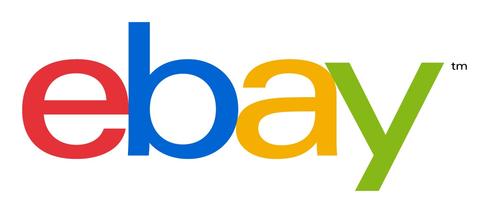Does eBay Fit In Instant Gratification Economy?
What's left for a company that matched the perfect item with a faraway buyer now that consumers are demanding it here and now?

Carl Icahn and other investors are worried about PayPal, and they want it spun off. But I'm more worried about eBay. I am. And it's not because the site was inaccessible for much of a day when I tried to go shopping this month. That was a hassle, yes. But I was still able to buy that private-label laptop battery from China. What if the site crashes in five years, though? Will anyone care? I hope so. But I'm not so sure.
That's what I'm worried about.
Word is that a PayPal spinoff, which shareholder activist Icahn has been advocating all year to eBay, is taking hold at the parent company. And for good reason: PayPal absolutely would be better off solo. Its strength has been in facilitating transactions between individuals, and between individuals and mom-and-pop businesses. As it pushes into mobile payments and other emerging business-to-consumer transactions, it is hampered as a subsidiary of a potential competitor. Rebranding eBay as PayPal, an alternative solution now being discussed, wouldn't solve that.
Neither would it solve larger problems for eBay. It was one of the first companies with a vision for the great potential of the Internet as a marketplace. But now, as online shopping embarks on its third decade, eBay is at risk of getting smoked on the next turn. What's required in the emerging instant gratification economy flies in the face of what makes eBay special. It doesn't have the chops to compete with the Internet giants. And it's too big -- and too profitable -- to move like a startup and pounce on new opportunities.
There's still a place for eBay in the "now" economy. But as Wal-Mart and Amazon go local by staging more products at warehouses closer to more of us, the eBay concept of going global to create markets for hard-to-find stuff will be increasingly limited.
[Facebook and Twitter test eBay's waters. Read Facebook, Twitter Push E-Commerce, Like It Or Not.]
Thus far, it looks as though eBay wants to go toe to toe with the big boys. And that's a mistake. It bought Shutl, a UK personal delivery service, and built eBay Now around the startup's model. Lofty plans for expansion beyond the core metropolitan areas have been scrapped.
Apparently, there isn't enough day-to-day business to sustain the personal shopper approach. If eBay Now were successful, though, eBay would have a different problem on its hands. The reason: The same-day service is built for national retailers, not its core mom-and-pop sellers. The better the service did, the more eBay would risk alienating its community.
The problem is that the personal shopping service isn't a good fit for the eBay site, which exists to match far-flung buyers and sellers of hard-to-find stuff. Occasionally, both sides of the same transaction might be geographically close. But if the chain stores aren't enough to sustain eBay Now, there certainly can be no relief from eBay proper.
It's due to that same reality that eBay will never be able to compete with the behemoths in warehousing and distribution. Stuff for sale on eBay is scattered, so warehousing's just not an option. Google doesn't physically store stuff, either, but it is racing headlong into the same-day delivery arena with partners. Last week, for example, it announced that it was adding Barnes & Noble to its stable of retailers for same-day delivery. Also, it has a lot of influence over what shoppers come across in their search for products both through its search engine and its mobile platform and ad network.
Mobile payment is also a soft spot in eBay's armor. Notice that I didn't say "digital payments." PayPal is the undisputed leader there. But transactions are moving from the browser to the smartphone. It's a different marketplace, and a lot of what makes PayPal so strong doesn't convey. Plus, this market is getting more crowded, with new and formidable entrants like Amazon.
(Notice that I haven't mentioned the data breach that's hounded eBay for the last few months. That's because it's doesn't play into the company's chances for succeeding in the now economy. Data breaches aren't unique to eBay. Just ask Target. Better yet, ask executives from any e-commerce company that hasn't suffered a security breach why they're not bragging about it. It's the same reason you'll never hear Southwest Airlines brag that no passenger has ever died in a crash.)
So what to do? For starters:
Watch eBay.
Taken together, eBay transactions tell a story. And eBay is in the enviable position of owning the underlying data. So mine it. Spot the trends. And figure out a way to address a growing need better. It's the same exercise that likely led to the StubHub acquisition seven years ago.
Add "now" to eBay.
No, not eBay Now. But find a way to do it with your core community, not with national brands. Fast is important. If, for about the same price, you can get it tomorrow from across town or in a week from Shanghai, which would you pick? Me, too. A good place to start would be to highlight the local sellers.
As a second order, a concentric-circle approach would be helpful. Ground shipments from California usually arrive to me in Phoenix within two days, as opposed to four or five from the East Coast. Help me identify the two-day ground sellers.
In the end, a low-commitment approach to same-day delivery -- Hello Google? -- could add same-day service to transactions that turn out to be local.
Build services for other e-tailers.
eBay Enterprise is a good start (though not when it results in transactions that compete with your constituents). PhiSix Fashion Labs, which eBay bought early this year, holds great promise. PhiSix enables a virtual dressing room by creating 3D models of clothing. That would help eBay sellers. And it could be expanded to furniture and other things. If PhiSix can get there first -- or do it better -- then eBay Enterprise could sell either the service or a finished database to retailers.
As e-commerce goes instant, it's tempting to go chase it. And eBay should try to do that. But in doing so, it can't lose sight of what made it great or, more importantly, who made it great. If you forget about us in your growth plans, you run the risk that, eventually, we'll forget about you.
In its ninth year, Interop New York (Sept. 29 to Oct. 3) is the premier event for the Northeast IT market. Strongly represented vertical industries include financial services, government, and education. Join more than 5,000 attendees to learn about IT leadership, cloud, collaboration, infrastructure, mobility, risk management and security, and SDN, as well as explore 125 exhibitors' offerings. Register with Discount Code MPIWK to save $200 off Total Access & Conference Passes.
About the Author(s)
You May Also Like
How to Amplify DevOps with DevSecOps
May 22, 2024Generative AI: Use Cases and Risks in 2024
May 29, 2024Smart Service Management
June 4, 2024







